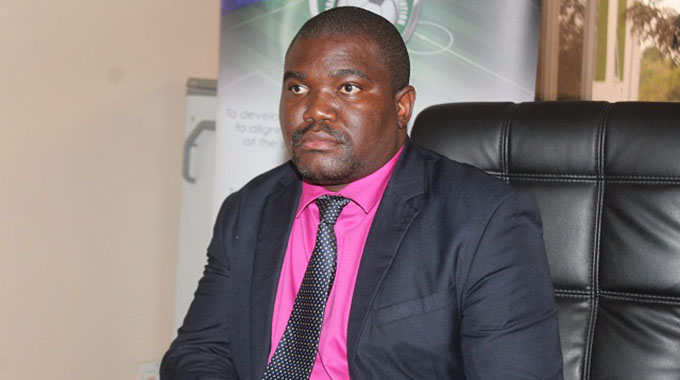Barbourfields under scrutiny

Eddie Chikamhi Senior Sports Reporter
BARBOURFIELDS faces another rigorous CAF test in two weeks’ time, and if the stadium fails to satisfy the inspectors, the Warriors could be forced to play their next 2021 AFCON qualifier on neutral soil.
Although the test is meant to give the inspectors an idea of the country’s preparedness ahead of the start of the 2022 World Cup qualifiers in October, their assessment will also cover the 2021 AFCON matches.
As shown in their past assessment, once a stadium is deemed unfit, it is barred from hosting all international matches.
And, this has triggered fears that, should they add Barbourfields to the list of local stadiums not allowed to host international football matches, it could have serious consequences for the Warriors.
Already, the National Sports Stadium, Rufaro and Mandava have been barred by CAF from hosting international matches.
The inspectors will also have another look at the giant stadium, but with nothing having been done to address the concerns they raised during their last visit, ZIFA don’t expect any reprieve.
The Warriors are set to take on the Desert Foxes of Algeria — the defending African champions — in a 2021 AFCON qualifier next month. Barbourfields received a partial clearance to host international matches, with the inspectors demanding that the floodlights at the stadium should be improved, or else it could be condemned.
Since their last visit, nothing has been done to improve the floodlighting system at the stadium, and this has triggered fears within the ZIFA leaders they could get another negative report.
Rufaro, which also used to host international matches, was not even put up for inspection, as it is currently in a deplorable state.
The CAF inspectors are not only targeting Zimbabwe, but will go to all the affiliates under the continental football governing body.
ZIFA yesterday received notice from CAF that they will be sending an inspection team in the next two weeks.
Xolisani Gwesela, the ZIFA spokesperson, said CAF asked them to nominate, at least two stadiums, for inspection and they have put Barbourfields and the National Sports Stadium up for scrutiny. CAF’s correspondence was accompanied by a stern warning that should all the country’s stadiums fail the test, ZIFA could be forced to look for alternative home in the neighbouring countries.
“CAF have indicated they are sending an inspection team in the next two weeks,’’ said Gwesela.
“This is against the backdrop of the CAF executive meeting held on February 2 in Rabat and the agreement to eradicate bad stadiums within member associations.
“CAF want to declare zero tolerance approach to bad stadiums used by member associations for the 2022 FIFA World Cup qualifiers.
“So, they have written to us today (yesterday) notifying that they are going to be sending stadium inspectors to Zimbabwe (and many other African countries) for a fresh round of inspections.
“We are relaying the message to the responsible authorities at the Ministry of Local Government and the Bulawayo City Council today (yesterday). It’s also important to note that CAF have said in no uncertain terms that any member association that doesn’t have a stadium which meets minimum requirements will be forced to play their home matches in another country.
“They have said this before, and they are saying it again. So, I think, we should take the warning seriously.
“At the moment we only have Barbourfields, which was exceptionally authorised to host games when the inspection team was here the last time and I don’t know if we will be able to get another grace period if the stadium also fails to meet their expectations.’’
Barbourfields has been hosting the CAF Champions League campaign for FC Platinum and was also used for the women’s Under-17 and Under-20 World Cup qualifiers.
The same stadium is expected to host the senior men’s national team’s remaining 2021 AFCON qualifiers. Zimbabwe will play Algeria on March 31 in the return fixture of the Group H back-to-back clashes. The hardline stance by CAF comes at a time when authorities in Zimbabwe are facing a backlash because of the deteriorating standards of the local sporting infrastructure.
Already, the domestic league is facing uncertainty ahead of the new season as most of the stadiums do not meet the requirements.
Renovations are yet to start at the National Sports Stadium two months after the 60 000-seater stadium was banned.
The giant facility, which has suffered years of neglect, is managed by the Ministry of Local Government, Public Works and National Housing, while Barbourfields is owned by the Bulawayo City Council.
“I am not sure if there are any improvements on the ground (at both the National Sports Stadium and Barbourfields). We have not received any communication or updates from the responsible authorities.
“They already know what is supposed to be done. ZIFA wrote to them and highlighted all the areas that need attention and the ball is in their courts,” said Gwesela.
CAF came up with the resolution to inspect stadiums ahead of the 2022 World Cup at their last executive committee meeting held in Morocco on February 2.
“It is essential that you can manage your own infrastructures, possibly within the framework of public private partnership, to keep control of your competitions and be less dependent on decisions emanating from other entities, political or otherwise,’’ said CAF president Ahmad Ahmad.
“It is essential for CAF that all African Member Associations finally have stadiums to match the talent of its players, equal to the passion that African supporters have for football, and to match our ambitions in world football.’’
FIFA pledged at the meeting to mobilise a minimum fund of US$1 billion to invest in infrastructures in all the 54 African member associations in the long term.










Comments